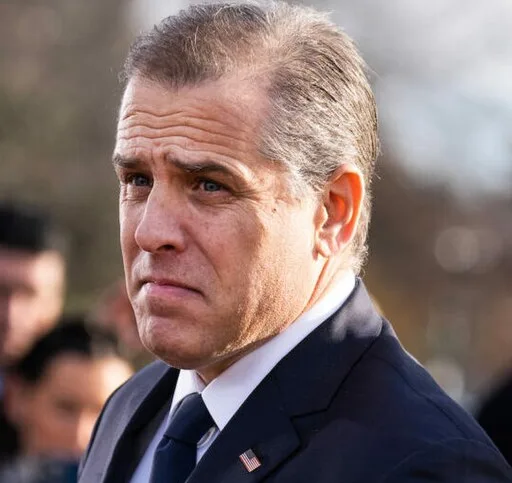Hunter Biden changes course to plead guilty to all tax evasion charges just as jury selection is set to begin, raising questions about his upcoming sentencing
In a dramatic twist on September 6, 2024, Hunter Biden, the son of U.S. President Joe Biden, stunned the court by pleading guilty to all nine charges in his federal tax evasion case. The sudden plea came on the eve of jury selection in a Los Angeles courtroom, catching both prosecutors and the public off guard.
Hunter Biden, who is 54, had previously denied intentionally evading $1.4 million in income taxes from 2016 to 2019. His legal team initially sought a plea deal that would allow him to admit guilt while maintaining his innocence, but after prosecutors objected, Biden agreed to a straightforward guilty plea. This decision marked a significant shift from his earlier stance and was made just as the court was preparing to select jurors.
Embed from Getty ImagesThe case has been closely watched not only because of Biden’s high-profile family connections but also due to the nature of the charges. Biden was accused of failing to file and pay taxes, evading taxes, and filing false returns. According to the indictment, he accumulated $7 million from foreign business ventures during the relevant period and spent nearly $5 million on personal luxuries, including drugs and high-end goods, which he falsely classified as business expenses.
Prosecutors, led by Leo Wise, expressed surprise at the plea deal, particularly because they had planned to introduce evidence about Biden’s overseas business dealings. These dealings have been the focus of Republican investigations, which allege that the Biden family engaged in influence-peddling. The White House has consistently denied these allegations.
Judge Mark Scarsi, who was appointed by former President Donald Trump, stated that Biden could face up to 17 years in prison and fines ranging from $500,000 to $1 million. Sentencing is set for December 16, 2024, one month after the presidential election and just before President Biden’s term concludes. Despite his conviction in a separate gun possession case earlier this year, Biden’s legal team emphasized that this plea was made to avoid the public spectacle of a trial and to protect his family from further scrutiny.
Biden’s guilty plea comes amid ongoing political turmoil and scrutiny of his personal and financial affairs. His case highlights the complexities of legal proceedings involving high-profile individuals and raises questions about the intersection of personal responsibility and political influence.
Analysis:
Political Perspective:
Hunter Biden’s guilty plea has significant political ramifications, especially given his familial connection to President Joe Biden. The timing of the plea, just before the 2024 presidential election, could have strategic implications. Critics argue that the plea deal might affect public perception of President Biden, especially among voters concerned about ethics and accountability within the administration. The case also highlights the ongoing political battles over the investigation into the Biden family’s business dealings, which have been used by some Republicans to challenge the President’s integrity and to fuel impeachment discussions.
Social Perspective:
Hunter Biden’s case underscores broader societal debates about privilege and accountability. As the son of a sitting president, Biden’s legal issues have attracted widespread media attention and public scrutiny. The plea deal may fuel discussions about whether high-profile individuals receive different legal treatment compared to ordinary citizens. It also brings to light issues of addiction and personal responsibility, as Biden’s attorneys framed his past actions within the context of his struggles with drug addiction.
Racial Perspective:
While the case itself does not directly involve racial issues, it reflects broader societal discussions about fairness in the justice system. High-profile cases often provoke comparisons with how similar cases involving individuals from marginalized communities are handled. Critics may argue that the visibility and legal treatment of Biden’s case highlight disparities in how the justice system addresses issues of tax evasion and personal conduct among different socio-economic and racial groups.
Gender Perspective:
The gender dynamics in Hunter Biden’s case are less pronounced but still relevant. The focus on Biden’s personal life and his struggles with addiction mirrors societal narratives about gender and responsibility. The case can be seen as part of a broader conversation about how men, especially those in prominent positions, are held accountable for their actions and how their personal challenges are portrayed in the media.
Economic Perspective:
Hunter Biden’s tax evasion case has economic implications beyond his personal finances. The charges and subsequent plea deal highlight issues of financial transparency and accountability among wealthy individuals. The case raises questions about the enforcement of tax laws and the broader impact of financial misconduct on public trust in economic systems. The revelation of Biden’s spending habits and financial decisions during the period in question also emphasizes concerns about the ethical management of personal wealth.
